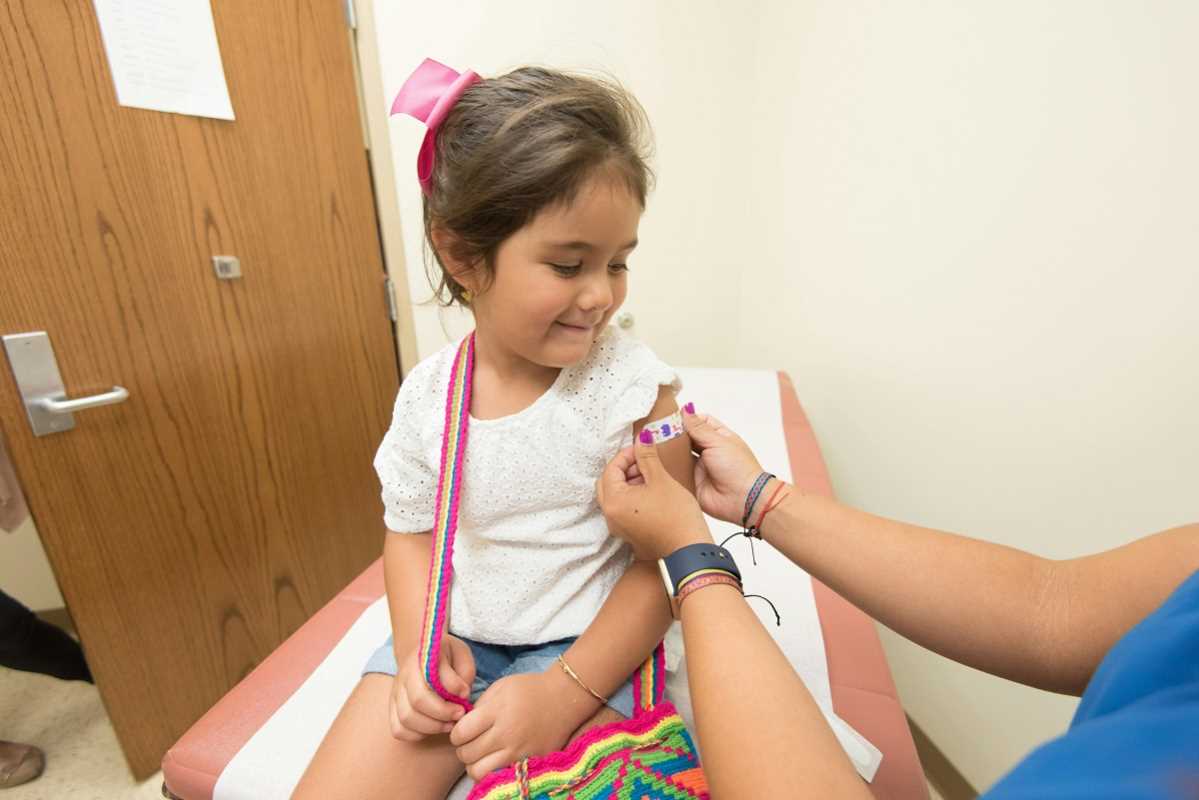Becoming a parent opens the door to a lot of questions—and when it comes to vaccinations, the internet and well-meaning advice from others can make things even more confusing. It’s easy to feel overwhelmed by conflicting opinions, especially when you’re trying to make the best choices for your little one. Misconceptions about vaccines have been circulating for years, and these myths can cause unnecessary fear and hesitation.
If you’ve heard concerning claims about vaccines and aren’t sure what to believe, you’re not alone. Below, we’ll break down the most common vaccine myths, explain the facts, and help put your mind at ease.
Myth 1: Vaccines Aren’t Safe for Babies
One of the most widespread myths is that vaccines aren’t safe or that they can cause serious long-term side effects. This belief has been fueled by misinformation online, but here’s the truth: vaccines go through rigorous testing and monitoring to ensure they’re safe for everyone.
Before any vaccine is approved, it’s carefully studied in multiple stages of clinical trials involving thousands of participants. Even after approval, organizations like the CDC and FDA continue to monitor vaccines for rare or unexpected side effects. Remember, mild side effects like redness at the injection site or a low fever are normal and show that the immune system is responding. Serious side effects are incredibly rare.
It’s also worth noting that the diseases prevented by vaccines, like measles or polio, pose far greater risks to your baby than the vaccine itself. If you’re unsure about your baby’s shots, your pediatrician can answer any questions or concerns you might have.
[Source placeholder for vaccine safety research]
Myth 2: Vaccines Cause Autism
This myth originated from a now-discredited 1998 study that falsely linked the MMR (measles, mumps, rubella) vaccine to autism. That study has since been retracted, and numerous large-scale studies conducted over decades have found no connection between vaccines and autism.
Organizations like the CDC, WHO, and American Academy of Pediatrics have repeatedly debunked this claim with solid evidence. Misinformation about vaccines and autism can create unnecessary fear in parents, but it’s important to trust the overwhelming body of scientific research rather than outdated and flawed studies.
Myth 3: Babies Get Too Many Vaccines at Once
The idea that infants receive “too many vaccines” during their first years is another common concern. Some parents worry that all those shots might overload their baby’s immune system. The reality is that vaccines use only a tiny fraction of your baby’s immune system capacity, which is designed to handle exposure to countless germs daily.
The vaccine schedule is carefully designed to protect babies during their most vulnerable stages, before they’re exposed to potentially life-threatening diseases. Delaying or spreading out vaccines can leave your child unprotected when they need it most.
Myth 4: Vaccines Contain Harmful Ingredients
Some parents are concerned about ingredients in vaccines, such as thimerosal, aluminum, or formaldehyde. However, it’s important to know that these substances are present in safe amounts and serve specific purposes, like preventing contamination or boosting the immune response.
For example, thimerosal, a preservative that contains a small amount of ethylmercury, has been used safely in vaccines for decades. It’s different from methylmercury, the harmful form found in some types of fish. Most vaccines given to young children don’t contain thimerosal. Aluminum salts, another common ingredient, help the body create a stronger immune response and are naturally found in food and water at higher levels than what’s in vaccines.
All ingredients in vaccines are thoroughly tested to ensure they are safe for humans. If you have concerns, ask your child’s doctor for more information—they’ll probably have heard every question you can think of.
Myth 5: Natural Immunity is Better Than Vaccination
Some people believe that it’s better for kids to “naturally” fight off diseases rather than getting vaccinated. While it’s true that the immune system can sometimes develop protection after a natural infection, the risks involved are far greater.
For example, natural infection with measles can cause severe complications like pneumonia, brain swelling, or even death. Chickenpox can leave children with scarring or lead to secondary infections. Vaccines provide the same immune protection without exposing kids to the potentially devastating consequences of the disease itself.
Choosing vaccines gives your child the benefits of immunity without the dangers of an actual infection. That’s a win-win for their health.
Myth 6: Vaccines are Only Necessary if These Diseases Still Exist
You might think that since diseases like polio or diphtheria are rare, there’s no need to vaccinate against them. The truth is, these diseases are rare because of widespread vaccination.
When vaccination rates drop, diseases that were once under control can make a comeback. Measles, for instance, has seen outbreaks in areas where vaccination coverage was low. Maintaining vaccine coverage protects not just individual children but entire communities by preventing the spread of disease.
Remember, many diseases are only a plane ride away, and a single unvaccinated case can lead to a dangerous outbreak. Staying up-to-date on vaccines ensures we don’t undo decades of progress in disease prevention.
Myth 7: Vaccines Aren’t Necessary Because There Are Alternatives
Some parents believe they can rely on healthy lifestyles, “natural” remedies, or alternative medicine to prevent diseases. While good nutrition and hygiene are important for overall health, they don’t offer specific protection against serious infections like pertussis (whooping cough) or meningitis.
Vaccines are uniquely designed to train your child’s immune system to fight off specific threats. Skipping vaccines in favor of unproven alternatives leaves your child vulnerable to preventable illnesses that can escalate quickly.
Myth 8: Adults Don’t Need Vaccines
While this myth isn’t specifically about children, it’s worth noting that parents need protection, too. Vaccines like the Tdap booster (for tetanus, diphtheria, and pertussis) or annual flu shots are essential for adults, especially those in close contact with newborns.
By staying vaccinated yourself, you create a circle of protection around your baby and reduce their risk of exposure to diseases.
Vaccinations are one of the most significant ways to protect your child, yourself, and your community from preventable illnesses. Sorting through vaccine myths can feel daunting, but it’s reassuring to know that most medical experts and scientific evidence support their safety and effectiveness.
If you’re feeling unsure, have an open conversation with your pediatrician—they’ll have the knowledge and experience to answer your questions without judgment.
 (Image via
(Image via





